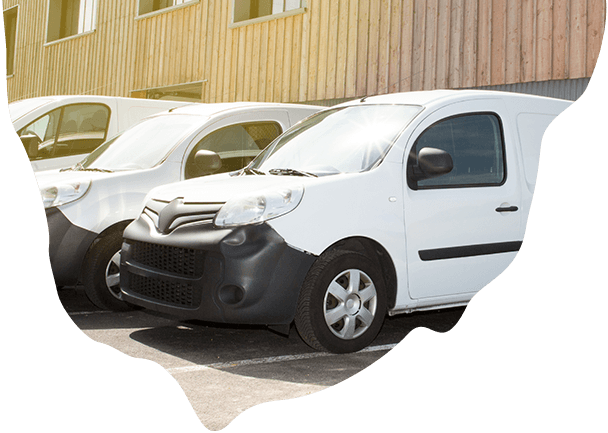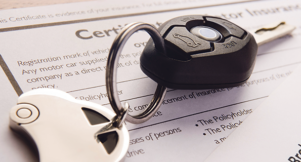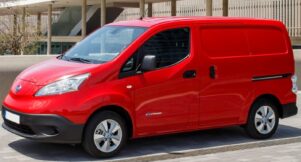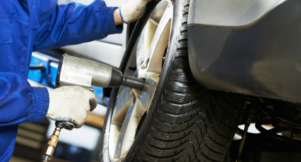Some of the insurance companies we work with




What is a light commercial vehicle (LCV)?
A light commercial vehicle, or LCV is an industry term that describes small to medium-sized vans that weigh 3,500kg or less (3.5 tonnes). Anything heavier than that, is considered a heavy commercial vehicle.
LCVs include pickups with open rear cabins as well as vans with closed cabins. Some of the most familiar vans on UK roads are classed as light commercial vehicles, including the Ford Transit, VW Caddy, Mercedes Sprinter, and Vauxhall Vivaro.

Call us on 0330 022 8791 for a quote over the phone
What is commercial van insurance?
Commercial van insurance covers the vans you use in relation to how you use them, whether that’s for work or social use.
You can buy commercial vehicle insurance for one van or if you’ve got a number of vans, you can insure them all on one fleet policy.
Do I need commercial van insurance?
If you use your van for work or to commute to work (even if that’s to the same place every day) then you may need commercial van insurance for business or commuting use.
If you only ever use your LCV for domestic reasons – for example, going to the shops, running personal errands, or doing the school run, you may need commercial van insurance for Social use.
What does commercial vehicle insurance cover?
What’s covered depends on the type of policy you choose:
- Third party only – the UK’s minimum legal requirement of insurance you must hold for your vehicle. It only covers you for damage or injury to another person or their property if you cause an accident. However, you and your own vehicle will not be covered, and you will not be able to claim with your insurance. Damaged cause by theft or fire is also not covered by a Third party only policy.
- Third party, fire and theft– in addition to third party only cover, insurers will indemnify you if your car is stolen or damaged by fire.
- Comprehensive – provides everything included under third party, fire and theft and will also indemnify you if your car is damaged or destroyed in an accident.
You can choose different types of cover based on the specific activities you use your LCV for. Options available include:
- Social only – covers non-work related driving. This may include shopping, holidays plus visits to friends and family.
- Carriage of own goods – this is suitable if you commute to work in your van or carry your own tools and equipment in relation to your job, for example, if you’re a builder, plumber, or dog groomer.
- Carriage of goods for hire or reward – this enables you to drive your van if you use it to carry or deliver goods in exchange for money, for instance, if you’re a courier.
- Haulage – suitable if you’re transporting or delivering items over long distances.
It’s always important to make sure your policy reflects the way you use your van. If you’ve got the wrong type of cover for your needs, your insurer could void your policy and refuse to pay out if you make a claim.
Light Commercial Vehicles Insurance
What is a light commercial vehicle (LCV)?
A light commercial vehicle, or LCV is an industry term that describes small to medium-sized vans that weigh 3,500kg or less (3.5 tonnes). Anything heavier than that, is considered a heavy commercial vehicle.
LCVs include pickups with open rear cabins as well as vans with closed cabins. Some of the most familiar vans on UK roads are classed as light commercial vehicles, including the Ford Transit, VW Caddy, Mercedes Sprinter, and Vauxhall Vivaro.
What extras can I add to my LCV pickup insurance?
Some insurers may also offer a range of optional extras that you can add for an additional cost. You’re under no obligation to add any of them, but usually they do increase the number of events you are covered for, which can put your mind at rest should you need to claim.
Popular additions include:
- Breakdown cover
- Courtesy van
- Misfuelling cover
- Replacements for lost keys
- Glass and windscreen cover
- Legal expenses.
Does insurance for commercial vehicles cover the items in my van?
Usually, commercial vehicle insurance won’t cover the items in your van. You can purchase separate policies for goods in transit insurance or tools cover if you need them.
How much does commercial van insurance cost?
Your premium will depend on a number of factors, including the level of cover you choose and the activities you use your van for. Your insurer will also consider:
- The type of van you have – more expensive and powerful vans tend to cost more to insure.
- Your age – if you’re a young driver you can expect to pay significantly higher premiums as under 25s are more likely to be involved in an accident according to industry statistics.
- Driving and claims history – you may pay more for cover if you have driving convictions or made a recent claim.
- Additional features – if you’ve added extras, this will usually increase what you pay, however, optional features can represent excellent value for money if you need to claim on them, so they could be worth your while.
- Modifications – changes to your van can increase the cost of insurance, which is worth knowing before you make alterations. Generally, the exception is signwriting which can actually help lower van insurance premiums.
How can I get cheap commercial van insurance?
Although cost is an important factor for many people when it comes to choosing insurance for commercial vehicles, sometimes the optional extras are worth the additional money. That is why it is worth thinking about the total value for money of the policy and whether it suits your individual needs. For example, breakdown cover or a courtesy van might seem pricey and unnecessary, but it might help keep your business going should the worst happen.
That said, there are other ways to help reduce the cost of commercial van insurance, without compromising on cover, for instance:
- Pay for your policy annually – paying in instalments might be convenient but it also means added interest.
- Increase your voluntary excess – this can lower your overall premium, but if you cannot cover the cost of the excess should you need to, the claim might be unsuccessful.
- Keep your van as secure as possible – parking your van in a locked garage or private driveway overnight can help keep premiums low, as can investing in extra security like an immobiliser.
- Build up your no claims bonus – the more years of no claims you have, the more you can expect to shave off your premium.
- Select drivers with no penalty points – your premium could be lower if all drivers named on the policy have clean driving records.
- Consider a telematics policy – also known as black box insurance, these policies monitor your driving and base premiums on the data recorded. If you drive consistently well, it could mean your premium falls faster compared to having a standard policy.
Compare quotes for great value commercial van insurance
Comparing a wide range of insurers could be the quickest and easiest way to save money on commercial van insurance. At mustard.co.uk, you can compare quotes from some of the leading UK insurers by simply filling in our online form. If you prefer to speak to someone, you can do that too, by calling a friendly expert on 0330 022 8791.
LCV insurance FAQs
How many vans can I add to a light goods vehicle insurance policy?
Commercial van insurance usually only covers one vehicle. If you’ve got more than one business van and want to insure them all on one policy, you can look at fleet van insurance.
Does commercial vehicle insurance cost more than private van insurance?
This really depends on the specific policy you need, as well as your circumstances.
For example, if you’re a delivery driver and need commercial vehicle insurance along with goods for hire and reward, your policy might cost more than someone who only needs carriage of own goods. This could be because your mileage is likely to be high and you’ll have to make frequent stops; both of which can put you at greater risk of being involved in an accident.
How to insure a commercial vehicle?
This is the easy bit – simply start a quote by answering a few questions and we’ll show you quotes from our panel of insurers. Alternatively, if you’d prefer to speak to someone, you can call 0330 022 8812.
mustard.co.uk Car Insurance Reviews
Take a look at our genuine customer reviews








